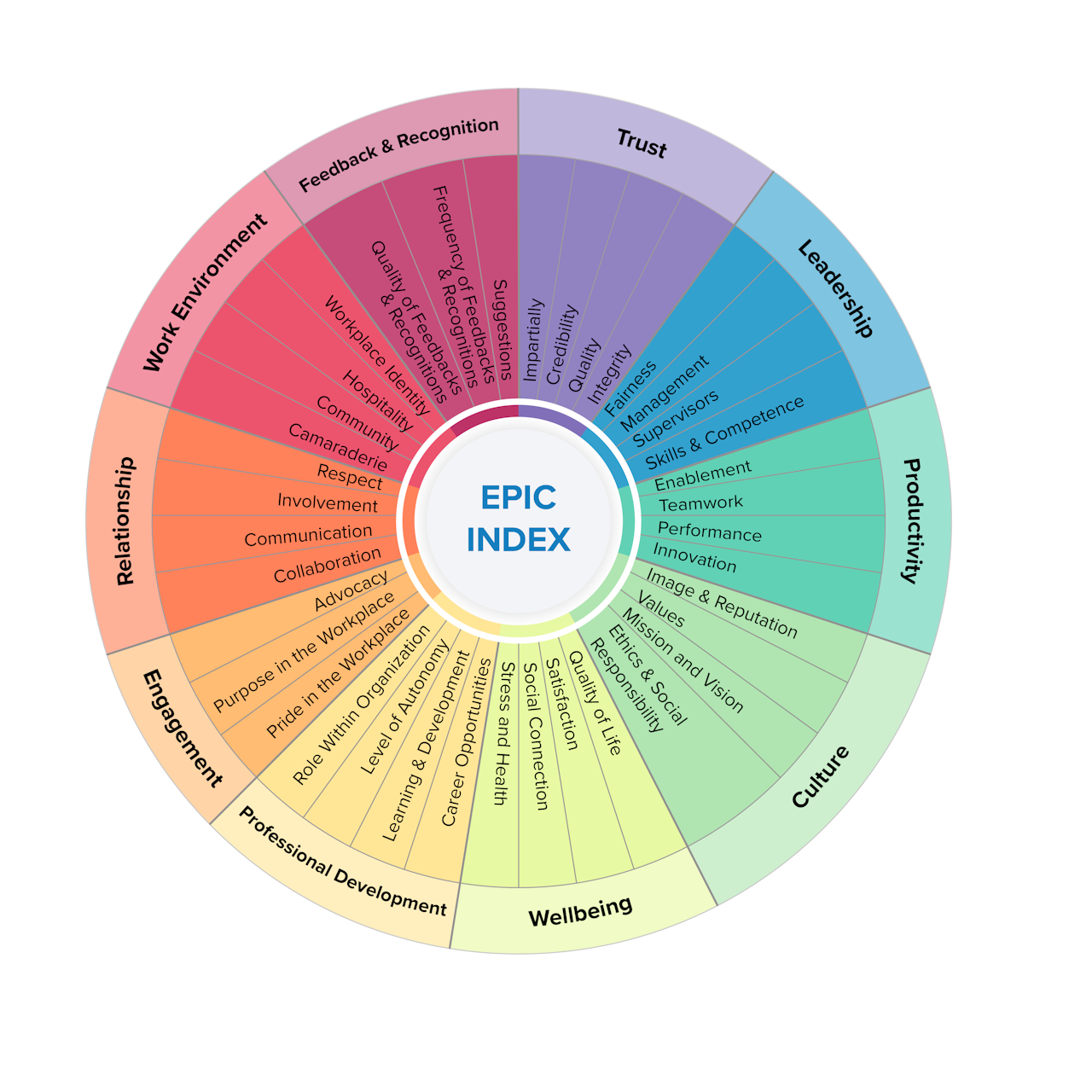

Relationships
Relationships form the bedrock of an organization's social infrastructure, contributing significantly to its performance and productivity. Key dimensions of relationships in a workplace context include Collaboration, Communication, Involvement, and Respect.
Collaboration is the act of working together to achieve a common goal. It involves the mutual exchange of ideas, knowledge, and skills, fostering a sense of unity and shared purpose. Questions regarding collaboration assess the level of teamwork, cooperation, and collective problem-solving within the organization.
Communication, both verbal and non-verbal, facilitates the sharing of information and the coordination of activities within an organization. Effective communication can lead to improved understanding, better decision making, and increased trust among team members. Questions on this dimension focus on the clarity, frequency, and openness of communication from supervisors and colleagues.
Involvement refers to the extent to which employees are encouraged and allowed to partake in decision-making processes that affect their work or work environment. It fosters a sense of ownership and commitment to the organization's goals. Questions around involvement gauge the level of autonomy employees have, and the opportunities they are given to influence decisions and processes.
Respect denotes the degree to which employees feel valued and treated with dignity and fairness. A culture of respect fosters inclusivity, boosts morale, and reduces conflict. Questions on respect evaluate how employees perceive their treatment by supervisors and colleagues, including the consideration shown towards their feelings and views.
Together, these dimensions paint a comprehensive picture of the quality of interpersonal relationships within the organization. They shape the organizational culture and influence various outcomes, including job satisfaction, employee retention, and overall performance. Thus, they play a critical role in the success of the organization.
